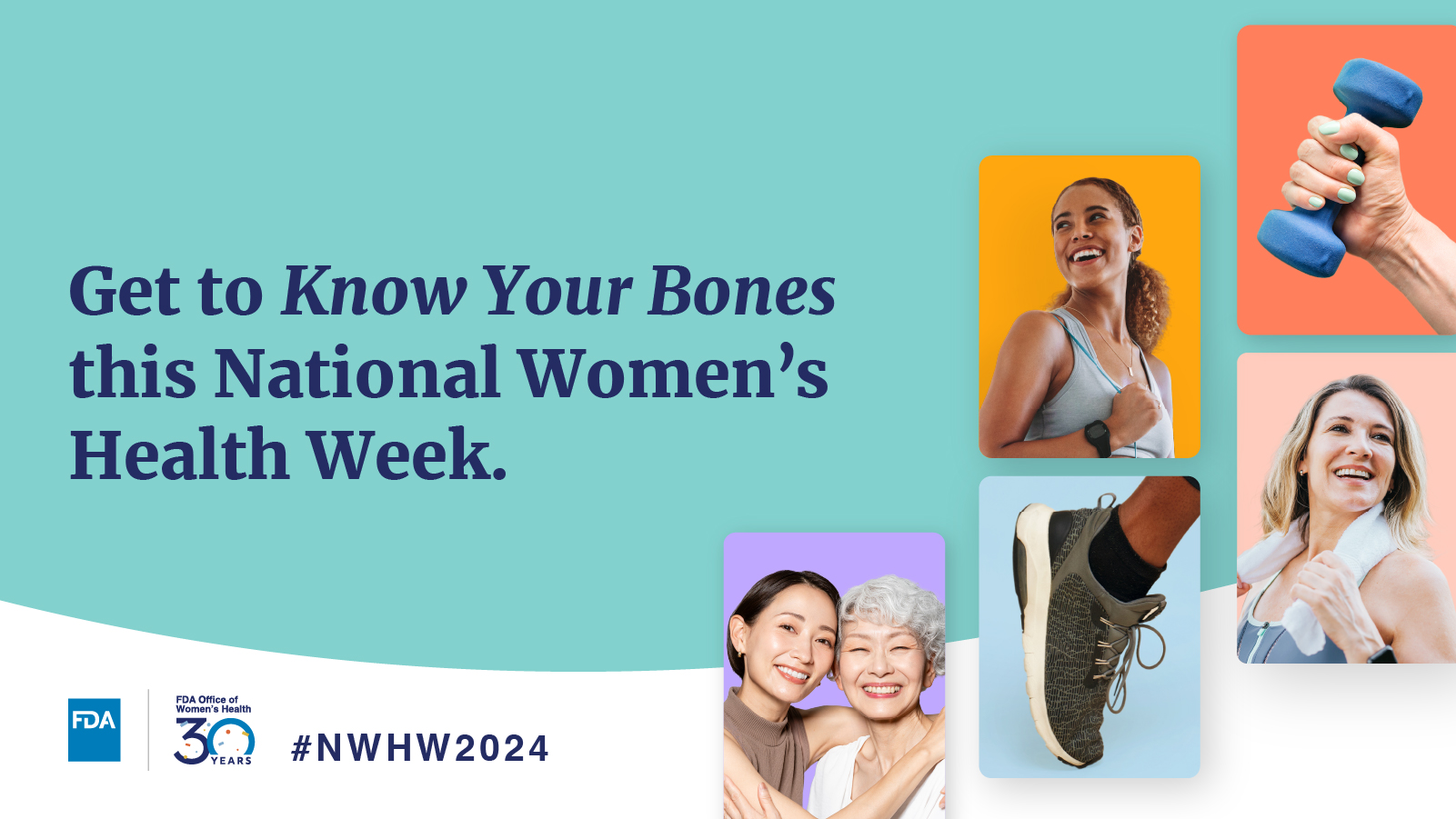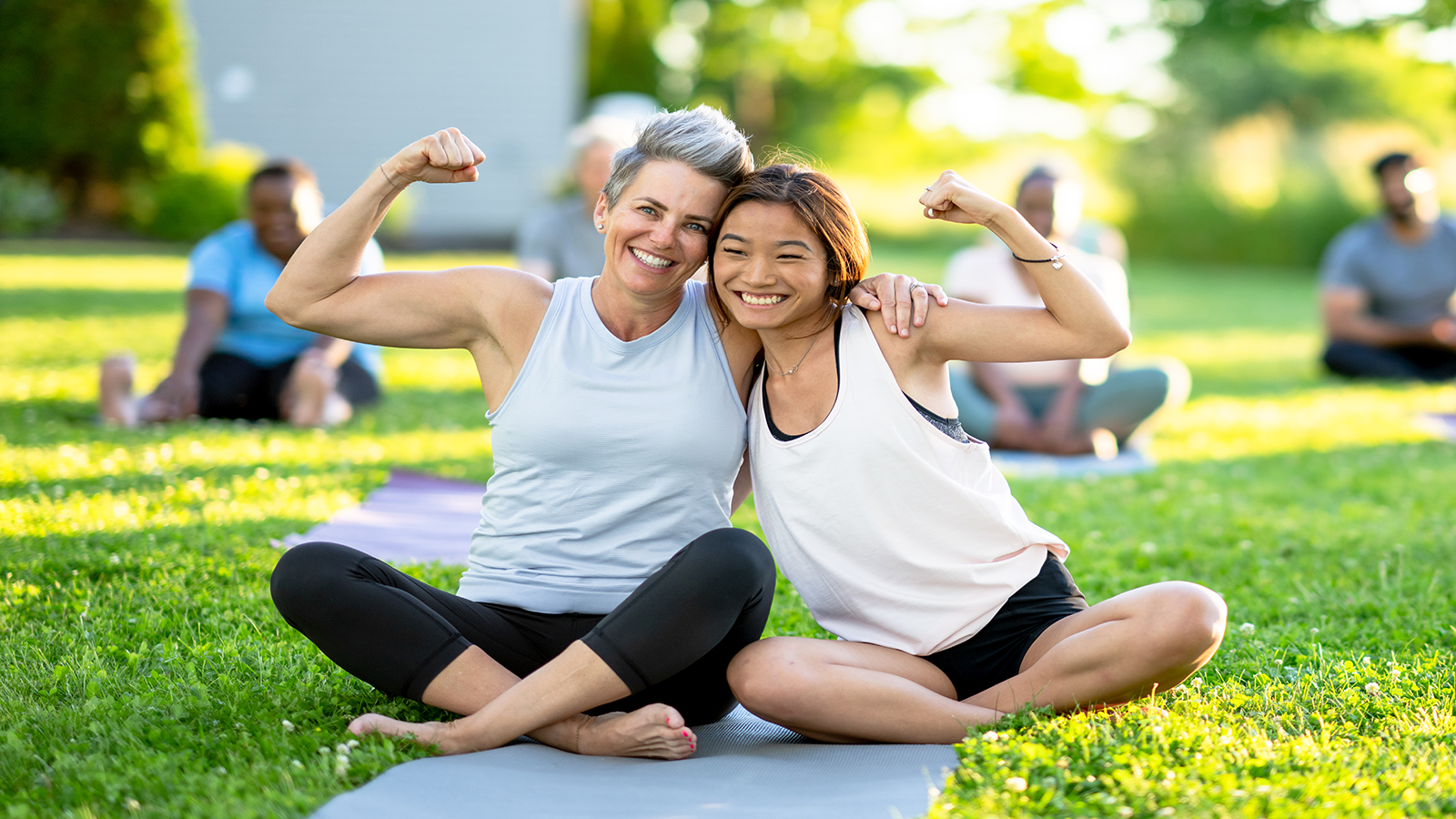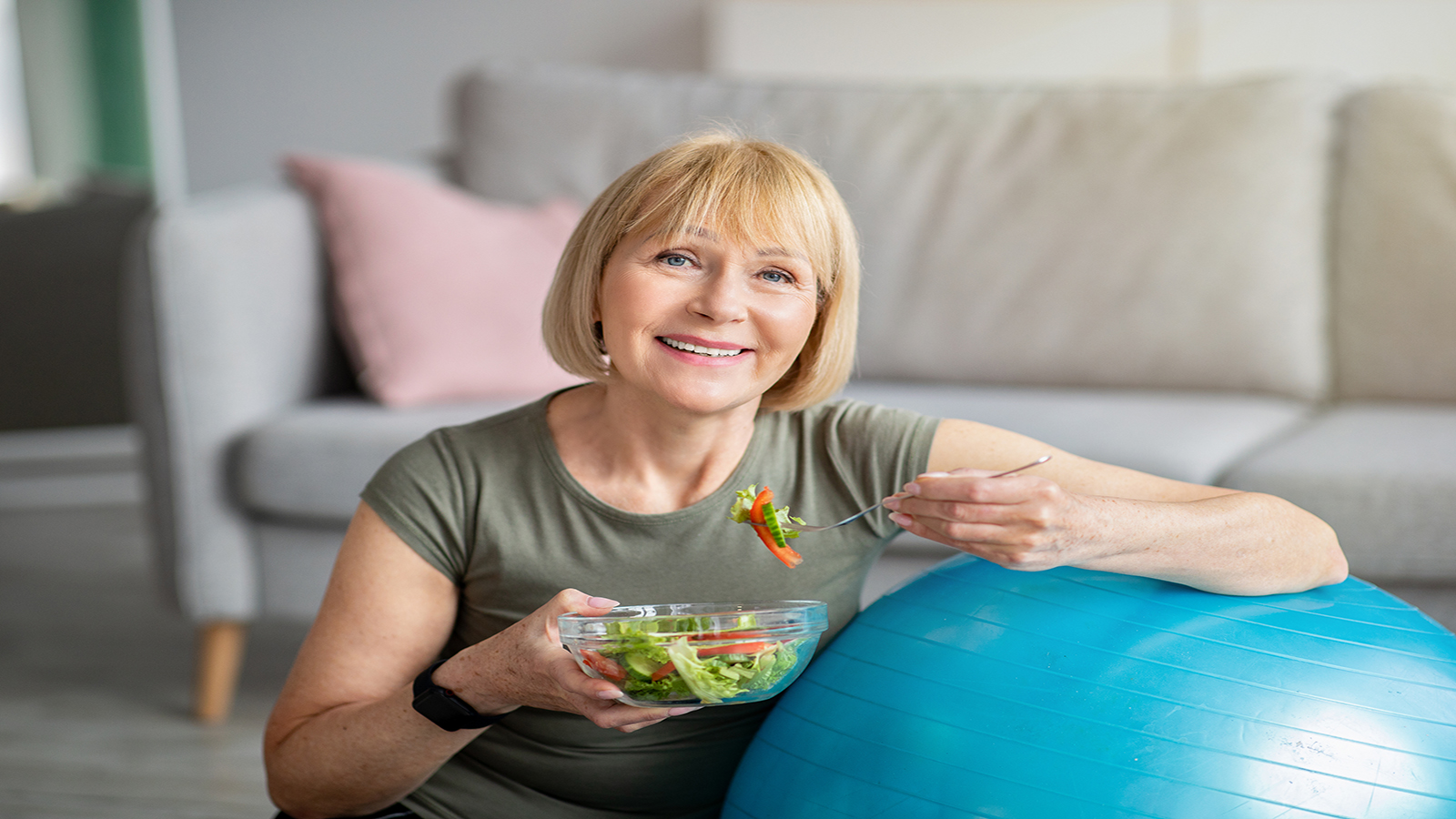Know Your Bones
Knowledge and News on Women’s Health (KNOWH) blog from FDA Office of Women’s Health

National Women’s Health Week (NWHW) is an annual observance to remind women to prioritize their health and well-being. Each NWHW, FDA Office of Women’s Health (OWH) celebrates women and their health by highlighting important health topics that impact women of all ages.
This year FDA OWH’s theme is Know Your Bones, to encourage women to take control of their health by learning about bone health including preventing and managing osteoporosis—a disease that causes very weak bones that break easily.
Throughout NWHW, OWH will be sharing information to help you Know Your Bones. Check out our National Women's Health Week (NWHW) webpage for more information on our NWHW activities.
Bone health is often overlooked until problems arise. It doesn’t matter how old you are. You can take steps now to Know Your Bones.
Why bone health matters for women
Women are at higher risk of developing osteoporosis. Osteoporosis is about four times more common in women than men. Women are more likely to get osteoporosis because of:
- Hormonal changes: Estrogen, a hormone that helps maintain bone density decreases after menopause.
- Body size: Slender, thin-boned women are at greater risk of developing osteoporosis.
- Aging: Women often live longer than men. Bone loss happens naturally as we age.
Osteoporosis is most common in older women, but younger women can also get osteoporosis. Girls and women of all ages need to take steps to protect and maintain their bones. There are tests that use either X-rays or ultrasound (sound waves) to measure bone density and can help determine if you have osteoporosis. Health care providers may recommend osteoporosis screening for women aged 65 and older, or earlier for women with specific risk factors.
Prioritizing bone health at every age
Adolescence and young adulthood: Building strong bones during childhood and the teen years is important to help prevent osteoporosis later in life. Participate in regular physical activity including weight bearing exercises like yoga or walking and eat a calcium-rich diet with foods like dairy products, leafy greens and calcium fortified foods.
Childbearing years: Having a baby can be a joyous time but can also be demanding on the body. While in the womb, fetuses get their nutrients from their mother. If you don't get enough calcium from food or supplements, your fetus will use the calcium in your bones. Prenatal vitamins often contain calcium and vitamin D, which are important for both the mother and the fetus’s bone health. Your body also makes more of the hormone estrogen during pregnancy, which helps protect bones. You may lose some bone density during pregnancy and with breastfeeding, but any bone mass lost is temporary and usually restored after childbirth or after breastfeeding.
Perimenopause and menopause: As estrogen levels decline, women are at an increased risk of bone loss. Weight bearing exercise and getting adequate calcium and vitamin D may help. Osteoporosis screening is recommended for women younger than 65 who have risk factors for osteoporosis such as a family history of osteoporosis or who take certain medicines to treat long-term health problems. Talk with your health care provider about whether you need to be screened for osteoporosis. If you are found to have osteoporosis, your provider may recommend medicine to prevent more bone loss or build new bone mass.
Post-menopause: Continue to prioritize your bone health post-menopause to maintain bone strength and reduce the risk of fractures. Physical activity and diet are vital to bone health in older adults. Talk with your health care provider about osteoporosis screening, lifestyle changes, and possibly treatments to prevent more bone loss, help keep your bones strong or build new bone mass.
There is no way to cure osteoporosis. If you have been diagnosed with osteoporosis, there are prescription medicines you can take. Talk with your health care provider about your treatment options.
Nutrition and bone health
Nutrition can affect your bones. Not getting enough calcium, vitamin D and other important nutrients, may lead to weak bones. Eating disorders can affect bone and health because the body may not be getting the energy and nutrients it needs to stay healthy and strong.
People experiencing eating disorders like anorexia greatly reduce the number of calories and nutrients they consume, which can prevent important growing and healing processes from taking place. In girls and young women, lack of proper nutrition is especially harmful to bone health, as bones may not grow as dense or as strong as they should. Learn more about the effects of nutrition on bone health.
5 tips for maintaining strong bones
- Eat a balanced diet. Get enough calcium and vitamin D in your diet.
- Stay physically active. Engage in weight bearing exercise like walking.
- Avoid smoking and excessive alcohol use.
- Get regular check-ups.
- Talk with your health care provider about your health care concerns and if you need osteoporosis screening before age 65.
This NWHW take time to Know Your Bones. It’s never too early or too late to make bone health a priority. By prioritizing bone health, you can build and preserve strong bones.
DOWNLOAD - NWHW 2024 Social Media Partner Toolkit which focuses on bone health and osteoporosis. The toolkit provides resources for women and health care professionals, including sample social media messages and blog posts.
To learn more about osteoporosis including risk factors, diagnosis and treatment, visit the FDA OWH osteoporosis webpage.
For resources and materials on other women’s health topics, visit www.fda.gov/womens.
Related links
- Osteoporosis En Espanol
- Anorexia nervosa | Office on Women's Health (womenshealth.gov)
- The Impact of Disordered Eating on Muscle and Bone Health | Office on Women's Health (womenshealth.gov)




